Analyzing the Morality of Citizen Surveillance
In our increasingly interconnected world, the debate over citizen surveillance has become a hot-button issue, raising critical questions about the balance between security and privacy. As we navigate through the complexities of modern life, it’s essential to consider the ethical implications of monitoring practices that governments and corporations employ. Are we trading our personal freedoms for the illusion of safety? This article delves into the moral landscape of citizen surveillance, examining its impact on privacy, security, and societal trust, while highlighting the delicate balance between individual rights and collective safety.
To begin with, the concept of surveillance is not new; it has evolved from rudimentary observation to sophisticated technology-driven systems. Yet, the core ethical dilemmas remain the same. On one hand, proponents argue that surveillance enhances public safety and helps prevent crime. On the other hand, critics warn that such practices can lead to a culture of distrust and fear, where individuals feel constantly watched. This tension creates a moral quandary that society must address.
As we dive deeper into this topic, it’s crucial to recognize that the implications of surveillance extend beyond mere data collection. They permeate our daily lives, influencing how we interact with one another and perceive our environment. For instance, consider the feeling of unease that arises when we know we are being monitored. Does it not make us question our own actions and thoughts? This psychological aspect of surveillance can lead to a phenomenon known as the chilling effect, where individuals self-censor their behavior and speech simply because they fear being watched.
Moreover, the rise of technology has transformed surveillance methods, making them more pervasive and intrusive than ever before. With the advent of smartphones, social media, and advanced analytics, the amount of data collected on individuals has skyrocketed. This brings us to an important question: are we fully aware of how our data is being used and who has access to it? The lack of transparency surrounding data practices can lead to a significant breach of trust between the public and those in power.
In light of these considerations, it is imperative that we engage in a thoughtful dialogue about the ethical implications of citizen surveillance. By examining real-world case studies, analyzing public perception, and exploring legal frameworks, we can better understand the multifaceted nature of this issue. Ultimately, the goal should be to strike a balance between ensuring public safety and protecting individual rights, fostering a society where trust and accountability prevail.
- What is citizen surveillance? Citizen surveillance refers to the monitoring of individuals by government agencies or private organizations, often using technology to collect data and track behavior.
- How does surveillance impact privacy? Surveillance can significantly infringe on personal privacy by collecting sensitive information without consent, leading to a culture of mistrust.
- Are there laws regulating surveillance? Yes, various laws and regulations exist to govern surveillance practices, but their effectiveness can vary widely across different jurisdictions.
- What are the psychological effects of being under surveillance? Constant surveillance can lead to self-censorship and anxiety, affecting individuals' willingness to express themselves freely.
- How can we balance security and privacy? Achieving a balance requires transparent policies, community engagement, and a commitment to protecting individual rights while ensuring public safety.

The Ethical Dilemma of Surveillance
The rise of surveillance in our daily lives presents a complex ethical dilemma that challenges our understanding of privacy and security. As technology advances, the line between protecting the public and infringing on personal freedoms becomes increasingly blurred. This tension often leads to a heated debate: How do we balance the need for safety with the fundamental rights of individuals? It's like walking a tightrope—one misstep could lead to a fall into the abyss of authoritarianism.
On one hand, proponents of surveillance argue that it is a necessary tool for maintaining public safety and preventing crime. They assert that surveillance can deter criminal activity, assist law enforcement in investigations, and ultimately save lives. Imagine living in a city where crime rates plummet thanks to advanced monitoring systems. However, the flip side of this argument raises significant concerns about the erosion of personal privacy. When does our desire for security compromise our right to privacy? It’s a question that keeps many awake at night.
Furthermore, the ethical implications of surveillance extend beyond individual privacy rights. They touch upon issues of trust and social cohesion. When citizens feel they are constantly being watched, it can lead to a pervasive sense of unease and suspicion. This is not just a theoretical concern; studies have shown that constant surveillance can lead to what is known as the "chilling effect," where individuals modify their behavior out of fear of being monitored. This self-censorship can stifle creativity, dissent, and open discourse, which are essential components of a healthy society.
Moreover, the ethical dilemma is compounded by the question of who is watching the watchers. In many cases, surveillance systems are operated by government agencies or private corporations that may not have the public's best interests at heart. The potential for abuse of power is a significant concern, as history has shown us that surveillance can be used to suppress dissent and control populations. The infamous example of the Stasi in East Germany serves as a chilling reminder of how surveillance can spiral into a tool of oppression.
In exploring the ethical dilemmas surrounding surveillance, we must also consider the concept of informed consent. Are individuals truly aware of the extent to which they are being monitored? Often, the fine print in privacy policies goes unread, leaving many in the dark about how their data is collected and used. This lack of transparency raises ethical questions about whether consent is genuinely informed or merely a formality. It's akin to signing a contract without understanding the terms—how can one truly agree to something they don’t comprehend?
Ultimately, the ethical dilemma of surveillance is not just about balancing security and privacy; it’s about fostering a society where individuals feel safe yet free. As we navigate this complex landscape, it’s crucial to engage in open discussions about the implications of surveillance practices on our collective future. Striking the right balance will require thoughtful dialogue, robust legal frameworks, and an unwavering commitment to protecting individual rights.
- What is the primary ethical concern regarding surveillance? The main concern is the balance between individual privacy rights and the need for public safety.
- How does surveillance impact personal behavior? Awareness of being monitored can lead to self-censorship and a chilling effect on free expression.
- Who regulates surveillance practices? Surveillance practices are typically governed by a combination of local, national, and international laws, but the effectiveness varies widely.
- Can surveillance be ethically justified? Some argue that surveillance can be justified if it effectively enhances public safety without infringing on civil liberties.
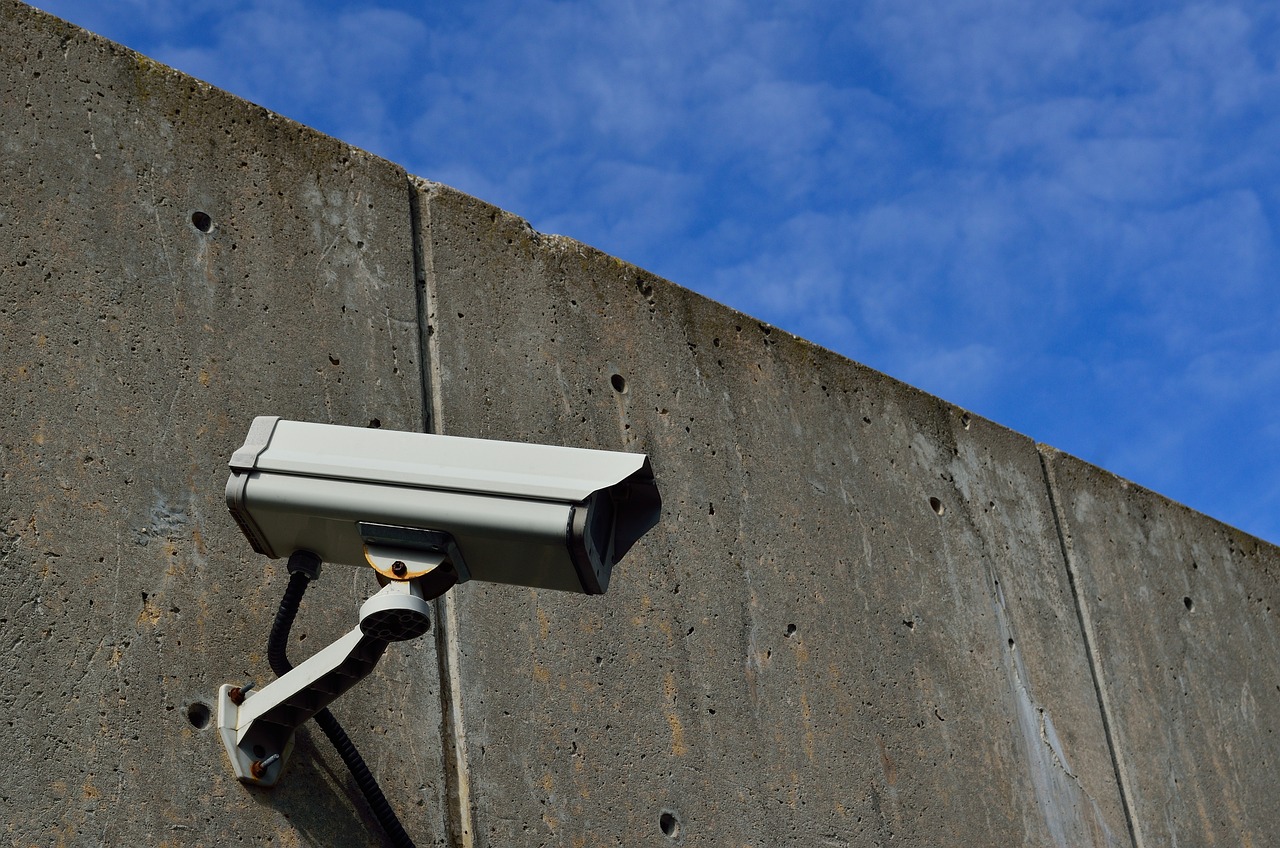
The Role of Technology in Surveillance
In today's world, technology plays a pivotal role in shaping surveillance practices. With the rapid advancement of digital tools and data analytics, surveillance has evolved from traditional methods into sophisticated systems capable of monitoring vast amounts of information in real-time. This transformation raises significant ethical questions about the implications of such technologies on our privacy and individual rights. Imagine a world where every move you make, every conversation you have, and every online interaction is being tracked and analyzed. Sounds like something out of a dystopian novel, right? Yet, this is the reality we face as technology becomes increasingly intertwined with surveillance.
One of the most profound changes in surveillance technology is the use of artificial intelligence (AI) and machine learning. These technologies enable systems to not only collect data but also to analyze it, identifying patterns and making predictions about behavior. For instance, facial recognition software can scan crowds and identify individuals within seconds. While this can enhance security measures, it also raises concerns about the potential for misuse, such as wrongful accusations or profiling based on race or ethnicity. The question arises: at what point does the benefit of enhanced security cross the line into invasive monitoring?
Moreover, the advent of the Internet of Things (IoT) has further blurred the lines of privacy. Everyday devices, from smart home assistants to wearable fitness trackers, collect data that can be accessed by companies and, in some cases, government agencies. The convenience these devices provide often comes at the cost of our personal data being harvested without our explicit consent. This leads us to consider whether we are truly aware of the extent of surveillance in our lives. Are we, as consumers, trading our privacy for convenience?
As we delve deeper into this topic, it’s essential to examine the ethical implications of such technologies. The balance between security and privacy is a tightrope walk that society must navigate carefully. On one hand, technology can enhance public safety, providing law enforcement with tools to prevent crime and respond to emergencies more effectively. On the other hand, the potential for overreach and abuse of these technologies can lead to a society where individuals feel constantly watched and judged. This creates a chilling effect, stifling free expression and open dialogue.
To better understand the impact of technology on surveillance, let's look at some key technologies in use today:
| Technology | Function | Ethical Concerns |
|---|---|---|
| Facial Recognition | Identifies individuals in real-time using camera feeds | Potential for misuse in profiling and wrongful accusations |
| AI Analytics | Analyzes data patterns to predict behavior | Risk of biased algorithms and invasion of privacy |
| IoT Devices | Collects personal data through everyday gadgets | Privacy breaches and unauthorized data sharing |
In conclusion, while technology undoubtedly enhances surveillance capabilities, it also raises profound ethical dilemmas that society must confront. The challenge lies in finding a way to harness these tools for security purposes without infringing on individual rights and freedoms. As we continue to innovate, we must remain vigilant about the implications of our technological advancements and strive for transparency and accountability in their use.
- What is the primary ethical concern surrounding surveillance technology? The main concern is the potential invasion of privacy and the misuse of collected data, leading to profiling and discrimination.
- How does AI impact surveillance practices? AI enhances surveillance by enabling real-time data analysis and pattern recognition, but it also raises issues of bias and accountability.
- What role do IoT devices play in surveillance? IoT devices collect vast amounts of personal data, often without users' explicit consent, leading to privacy concerns.
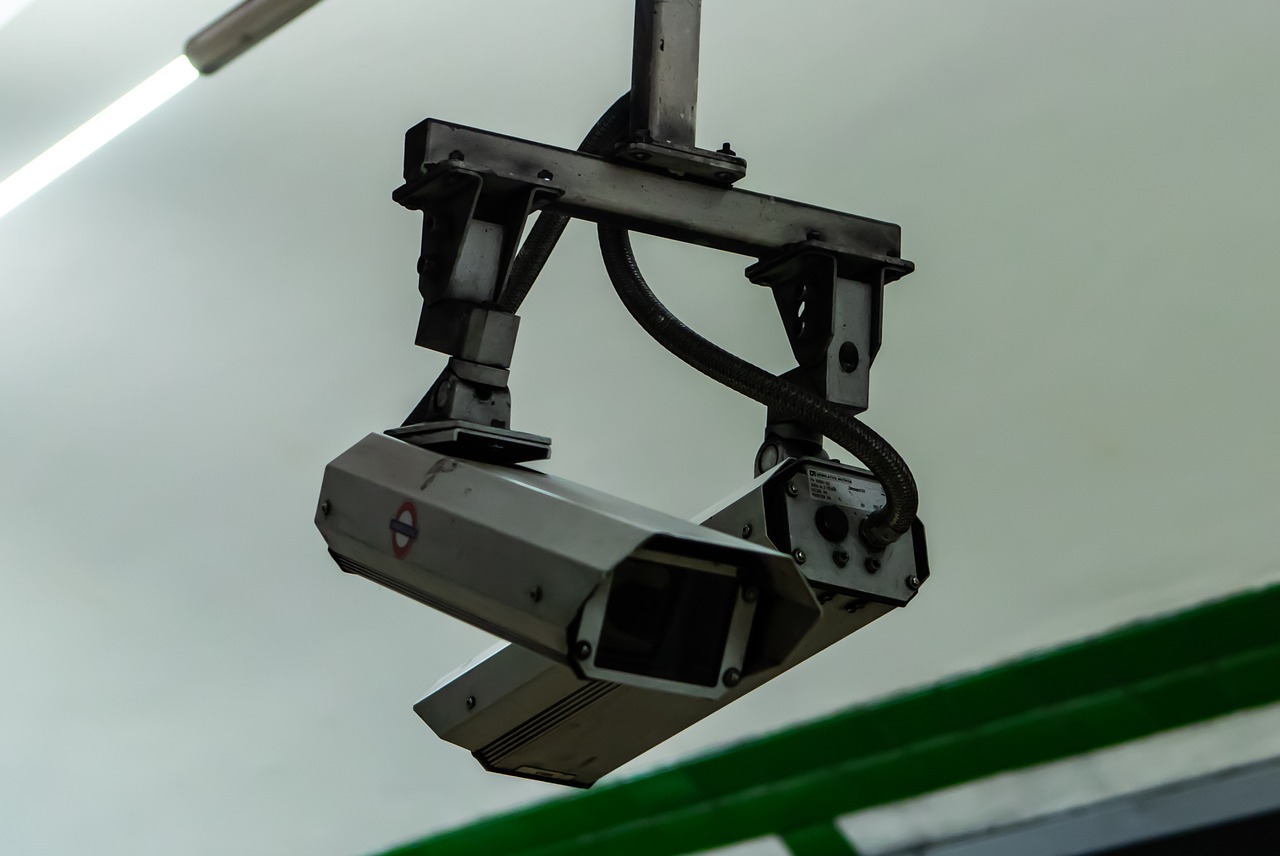
Data Collection and Consent
In our increasingly digital world, the issue of has become a hot topic that raises eyebrows and concerns alike. Every time we swipe our cards, click on a website, or even use our smartphones, we are often unknowingly handing over a wealth of personal information. But the real question is: do we truly understand what we are consenting to? Many individuals click 'agree' to terms and conditions without ever reading the fine print, which can be as lengthy and convoluted as a Shakespearean play. This raises a critical issue about the validity of consent in the age of surveillance.
Consent should ideally be an informed decision, yet in practice, it often feels more like a forced agreement. When faced with complex privacy policies, how many of us actually take the time to comprehend what we are signing up for? Research suggests that over 90% of users do not read privacy policies before consenting to them. This leads to a troubling scenario where individuals are oblivious to the extent of data collection and the potential consequences of their consent. It's akin to signing a contract for a house without understanding the mortgage terms—risky and potentially disastrous!
Moreover, the nuances of consent can vary significantly across different contexts. For instance, consider the difference between explicit consent—where a user actively agrees to data collection—and implied consent, where consent is assumed through user behavior. This distinction is crucial, as it can lead to ethical dilemmas regarding how data is used. Are we truly giving our consent, or is it being coerced under the guise of convenience?
To shed light on this issue, let’s break down the key components of data collection and consent:
- Awareness: Are individuals aware of what data is being collected?
- Understanding: Do users comprehend the implications of their consent?
- Freedom to choose: Are individuals genuinely free to opt-out without facing repercussions?
In this digital age, it’s essential to question whether the mechanisms for obtaining consent are truly ethical. Are companies prioritizing transparency, or are they simply ticking boxes to comply with regulations? The reality is that many organizations often use ambiguous language and complex jargon to obscure the true nature of their data practices. This lack of clarity can leave users feeling confused and vulnerable, much like wandering in a dense fog without a map.
As we navigate this intricate landscape of data collection and consent, the importance of transparency cannot be overstated. Organizations must strive to provide clear and accessible information about their data practices. This involves not just presenting privacy policies in a readable format but also ensuring that users are fully aware of what they are agreeing to. After all, informed consent is a fundamental right that should not be compromised in the name of progress.
In conclusion, the conversation around data collection and consent is not just about legalities; it’s about respect for individual autonomy and privacy. As citizens, we must advocate for our rights and demand a more ethical approach to data practices. Only then can we hope to find a balance between the technological advancements that make our lives easier and the fundamental rights that protect our privacy.
- What is data collection? Data collection refers to the gathering of information from individuals, often for analysis or marketing purposes.
- What does consent mean in this context? Consent involves giving permission for data collection, ideally based on informed understanding.
- How can I protect my data? You can protect your data by reading privacy policies, using privacy-focused tools, and being cautious about the information you share online.
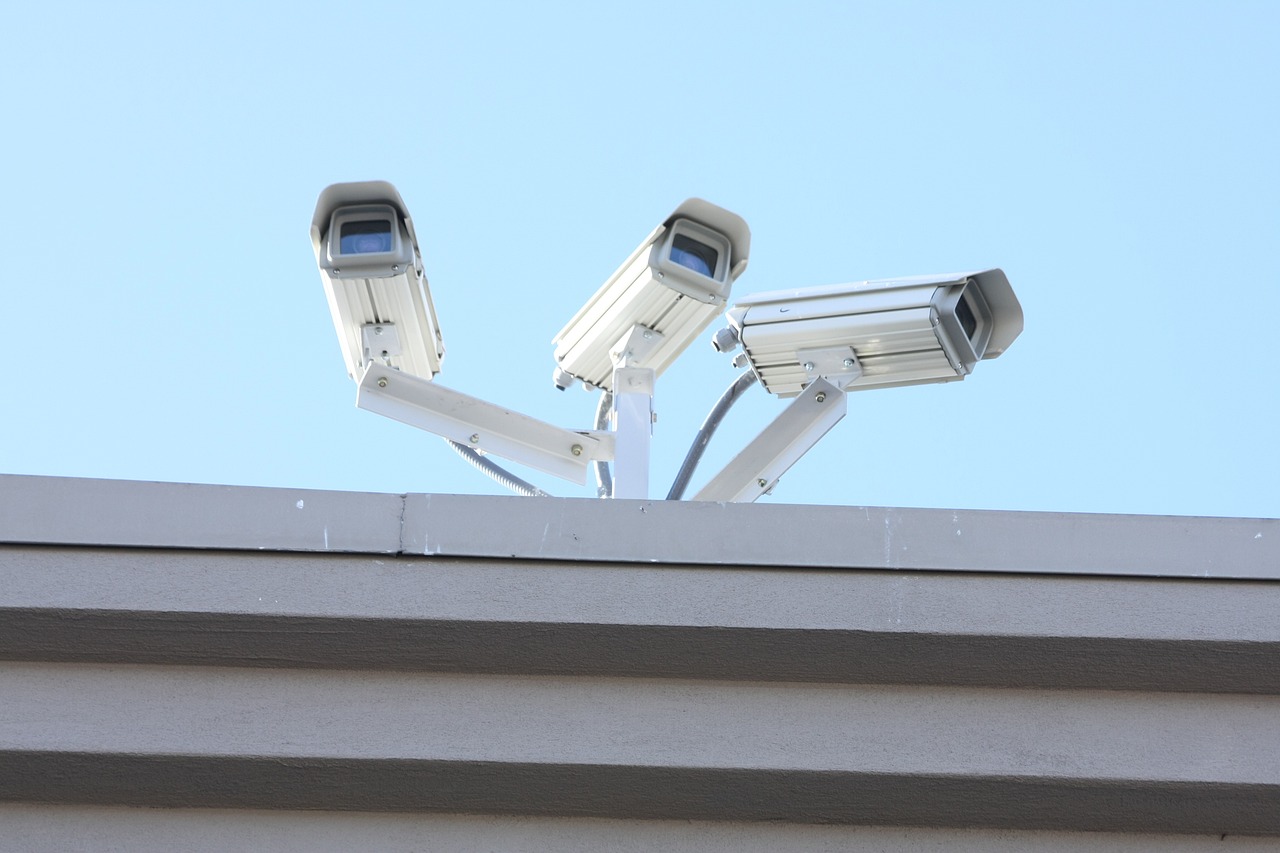
Informed Consent vs. Coercion
In the realm of surveillance, the concept of informed consent often collides with the reality of coercion. It raises a fundamental question: are individuals genuinely consenting to the monitoring of their data, or are they simply acquiescing under pressure? In an age where technology pervades every aspect of our lives, the lines between consent and coercion can become blurred.
To illustrate this, consider the myriad of digital services that require users to accept lengthy privacy policies before they can access the services. How many of us actually read these documents? Most people skim through them, if they even bother to look at all. This phenomenon suggests that while users may click “I agree,” their understanding of what they are consenting to is often superficial. They might not fully grasp the implications of their data being collected, stored, or even sold to third parties.
Moreover, the context in which consent is obtained plays a significant role. For instance, individuals may feel compelled to consent to surveillance measures in situations where opting out could lead to negative consequences, such as losing access to essential services. This is particularly evident in scenarios involving government surveillance where the stakes are high, and the perceived threat of non-compliance looms large. In these instances, the notion of consent becomes problematic, teetering dangerously close to coercion.
Furthermore, a lack of transparency from organizations regarding their surveillance practices exacerbates the issue. Many companies employ complex algorithms and data collection methods that are not easily understood by the average user. This opacity can lead to a false sense of security, where individuals believe they have consented to something benign, unaware of the potential for misuse of their data.
In light of these concerns, it is crucial to advocate for clearer communication and more ethical practices in obtaining consent. Here are a few considerations that could help bridge the gap between informed consent and coercion:
- Simplified Privacy Policies: Organizations should provide concise, easy-to-understand summaries of their privacy policies, highlighting key points about data collection and usage.
- Opt-in vs. Opt-out: Systems should prioritize opt-in consent, ensuring that individuals actively choose to participate in data collection rather than being automatically enrolled.
- Regular Updates: Users should be informed about any changes to privacy policies in a timely manner, allowing them to reassess their consent.
Ultimately, navigating the complex landscape of surveillance requires ongoing dialogue about the ethics of consent. As we move forward, it is essential to foster a culture that emphasizes genuine informed consent, rather than one that merely checks the box of compliance.
- What is informed consent in the context of surveillance? Informed consent refers to the process by which individuals are made aware of and understand the implications of data collection and monitoring before agreeing to it.
- How can coercion occur in surveillance practices? Coercion can occur when individuals feel pressured to consent to surveillance due to fear of losing access to services or facing negative consequences for non-compliance.
- What can organizations do to improve consent practices? Organizations can improve consent practices by simplifying privacy policies, prioritizing opt-in consent, and ensuring transparency about data usage.

Privacy Policies and Transparency
In a world increasingly dominated by technology, the importance of privacy policies cannot be overstated. These documents serve as the backbone of how organizations communicate their data collection practices and the extent to which they protect individual privacy. However, the reality is often far more complex than the legal jargon suggests. Many individuals may not fully understand the implications of these policies, leading to a significant gap between what is promised and what is delivered.
When we talk about transparency, we’re essentially discussing how openly organizations disclose their surveillance practices. Are they clear about what data they collect, how it's used, and who it’s shared with? Unfortunately, many privacy policies are crafted in a way that makes them difficult to digest. They can be filled with technical language and lengthy clauses that the average person finds overwhelming. As a result, individuals might unknowingly consent to terms that allow extensive monitoring of their activities.
To better understand the effectiveness of privacy policies, let’s consider a few key aspects:
- Clarity: Are the policies written in plain language that is easy to comprehend?
- Accessibility: Can users easily find and review these policies before consenting?
- Updates: Are users notified about changes to privacy policies, and do they have the option to opt-out?
Moreover, organizations must recognize that transparency goes beyond just having a privacy policy. It requires a commitment to ethical practices and accountability. For example, if a company collects user data for targeted advertising, they should not only inform users but also provide them with options to control their data. This could be achieved through user-friendly settings that allow individuals to manage their privacy preferences easily.
In conclusion, while privacy policies are a step in the right direction, they must be accompanied by a genuine commitment to transparency. Organizations need to move beyond mere compliance and foster a culture of trust with their users. Only then can we hope to create a society where individuals feel secure in their digital interactions, knowing that their rights are respected and protected.
1. What should I look for in a privacy policy?
When reviewing a privacy policy, focus on clarity, what data is collected, how it will be used, and whether you have control over your information. Look for easy-to-understand language and clear opt-out options.
2. Are all privacy policies the same?
No, privacy policies can vary significantly between organizations. Some may be more transparent and user-friendly, while others may be vague or overly complex.
3. Can I trust companies to protect my privacy?
Trust varies by organization. It's essential to research a company's reputation regarding data privacy and security before sharing your information.
4. What happens if I don’t agree with a privacy policy?
If you don’t agree with a privacy policy, you typically have the option to not use the service. However, this can limit your access to certain technologies or platforms.
5. How can I stay informed about changes to privacy policies?
Many organizations will notify users of changes via email or through their platforms. It's a good practice to regularly check the privacy policies of services you use.
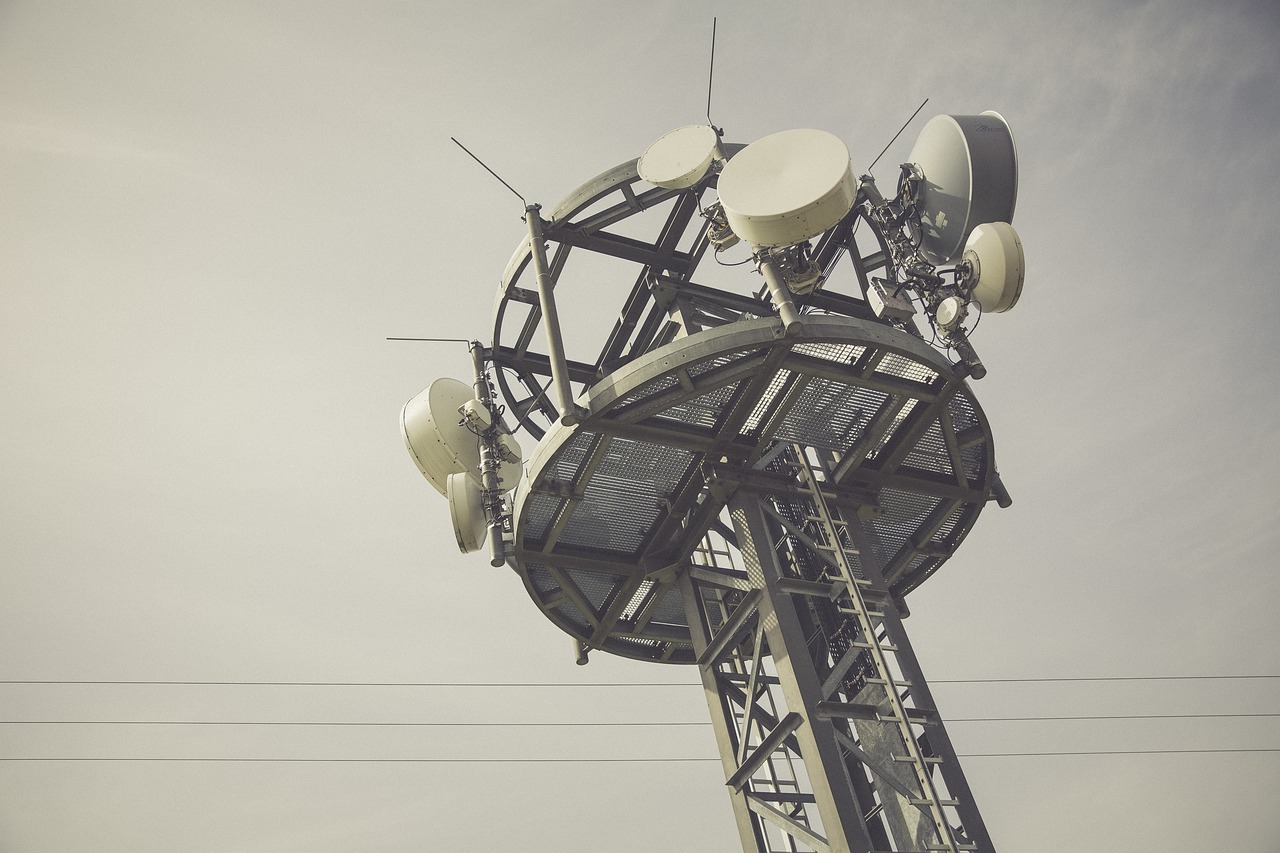
Public Perception of Surveillance
The way we perceive surveillance in our daily lives is a complex tapestry woven from threads of fear, trust, and curiosity. On one hand, many individuals see surveillance as a necessary evil, a protective measure against crime and terrorism. The idea that cameras are watching over public spaces can provide a sense of security, almost like having a guardian angel keeping an eye out for us. However, on the flip side, there’s a growing unease about the *erosion of privacy* and the potential for misuse of surveillance data. It raises a crucial question: Are we trading our freedom for safety?
Public opinion on surveillance is not static; it shifts with current events and technological advancements. For instance, incidents of data breaches or misuse of surveillance footage can lead to significant public outcry, prompting calls for stricter regulations. According to a recent survey, 60% of respondents expressed concerns about how their data is being used, while only 40% felt comfortable with surveillance measures implemented in their communities. This division highlights a crucial tension: the desire for safety versus the need for privacy.
Furthermore, the media plays a substantial role in shaping public perceptions. Sensationalized reports about surveillance abuses can lead to increased mistrust in government and corporate entities. When people hear stories about individuals being wrongfully surveilled or targeted, it amplifies fears and skepticism. In contrast, positive narratives about surveillance aiding in crime prevention can bolster support. This duality creates a rollercoaster of public sentiment, making it challenging for policymakers to navigate the landscape.
Another factor influencing public perception is the generational divide. Younger generations, having grown up in the digital age, may be more accustomed to sharing personal information online and thus may view surveillance as a *normal part of life*. Conversely, older generations might hold onto the traditional values of privacy and personal space, leading to a more critical stance on surveillance practices. This divergence illustrates how perceptions can be shaped by our experiences and the societal context we inhabit.
Ultimately, the conversation around surveillance is not just about technology or policy; it’s about trust. Trust in our institutions, trust in our fellow citizens, and trust in the systems designed to protect us. As we navigate this intricate web of surveillance, it’s essential to foster open dialogues that consider all perspectives. By doing so, we can work towards a society that values both security and privacy, creating a balanced approach that respects individual rights while ensuring public safety.
- What is citizen surveillance? Citizen surveillance refers to the monitoring of individuals in public or private spaces, often using technology such as cameras or tracking devices, typically for security purposes.
- How does surveillance affect personal privacy? Surveillance can significantly impact personal privacy by collecting data without consent, potentially leading to misuse or unauthorized access to personal information.
- Are there laws regulating surveillance? Yes, various laws exist to regulate surveillance practices, but their effectiveness can vary greatly by country and region.
- How can the public influence surveillance policies? Public opinion can influence surveillance policies through advocacy, participation in community discussions, and voting for representatives who prioritize privacy rights.
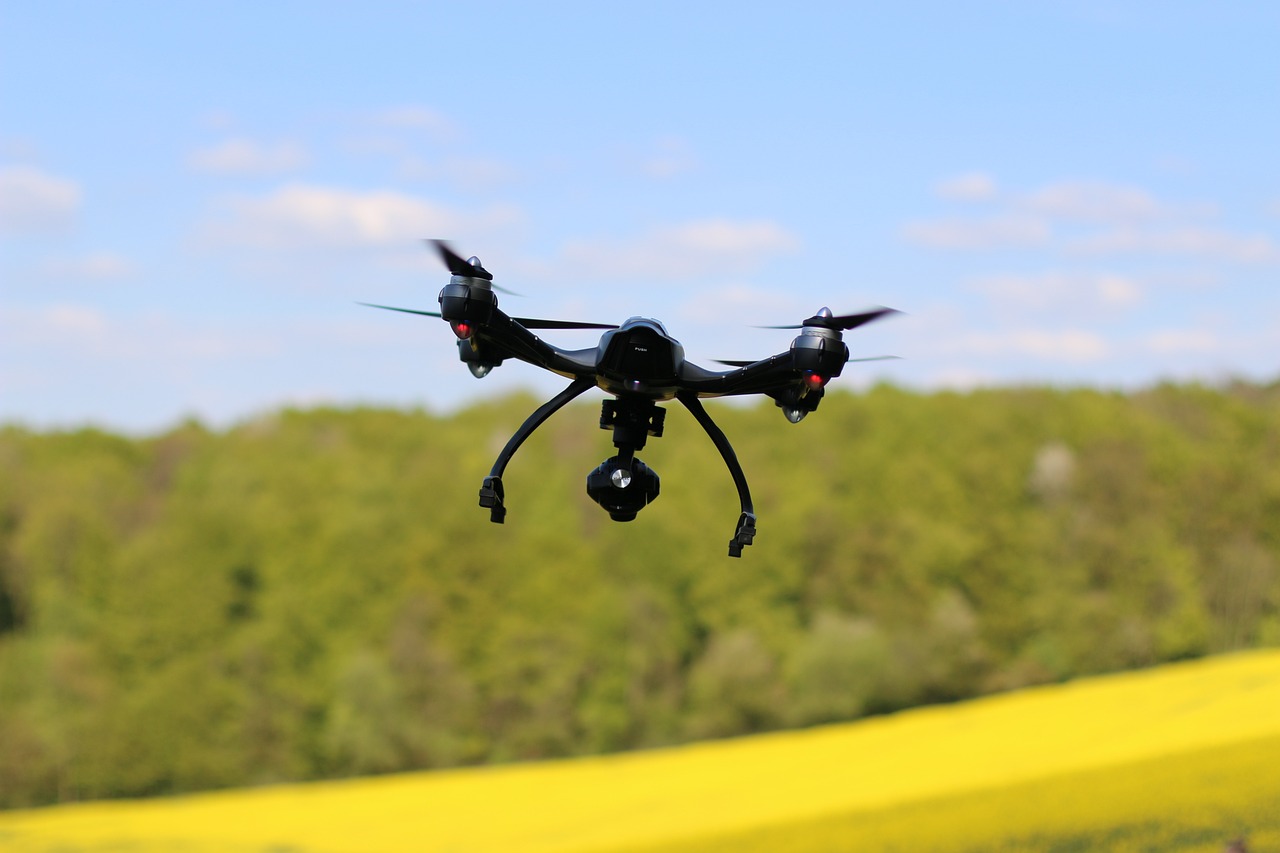
Legal Frameworks Governing Surveillance
The landscape of surveillance is heavily influenced by a complex web of legal frameworks that aim to balance the need for security with the preservation of individual rights. These laws vary significantly across different jurisdictions, reflecting the unique cultural, political, and social contexts in which they operate. At the heart of this legal conundrum is the question: how do we ensure that surveillance practices do not infringe upon the fundamental rights of citizens while still providing necessary oversight for safety and security?
In many countries, surveillance laws are shaped by a combination of constitutional protections, statutory regulations, and case law. For instance, in the United States, the Fourth Amendment provides a constitutional safeguard against unreasonable searches and seizures, which has been the basis for numerous legal battles surrounding surveillance practices. Conversely, countries in the European Union are governed by the General Data Protection Regulation (GDPR), which sets stringent requirements for data collection and processing, emphasizing the importance of individual consent and data protection.
| Country | Key Legislation | Focus Area |
|---|---|---|
| United States | Fourth Amendment | Protection against unreasonable searches |
| European Union | General Data Protection Regulation (GDPR) | Data protection and privacy |
| United Kingdom | Investigatory Powers Act | Regulation of surveillance and data retention |
| China | Cybersecurity Law | State control over data and surveillance |
Despite these frameworks, the effectiveness of existing laws is often called into question. Many argue that current regulations are outdated and fail to address the rapid advancements in surveillance technology. For instance, the rise of artificial intelligence and facial recognition systems has outpaced legislative efforts, leading to a patchwork of regulations that can be inconsistent and inadequate. This situation raises critical concerns about accountability and oversight, as citizens may find themselves subject to surveillance practices without proper legal recourse.
Furthermore, the legal frameworks governing surveillance are often criticized for their lack of transparency. Many citizens are unaware of the extent to which they are being monitored or the specific laws that permit such actions. This lack of awareness can lead to a significant erosion of trust between the public and governing bodies. As we navigate this complex terrain, it becomes crucial to advocate for laws that not only protect individual rights but also promote transparency and accountability in surveillance practices.
In conclusion, the legal frameworks governing surveillance are essential for ensuring that citizens' rights are protected while allowing for the necessary oversight in public safety. However, as technology continues to evolve, so too must our laws. It is imperative that we engage in ongoing discussions about reforming these frameworks to better reflect the realities of modern surveillance and to restore public trust.
- What are the main laws governing surveillance in my country? - The laws differ by country; for example, the U.S. has the Fourth Amendment, while the EU follows the GDPR.
- How can I protect my privacy against surveillance? - You can use encryption tools, be aware of privacy settings on devices, and stay informed about your rights.
- Is there a difference between government and corporate surveillance? - Yes, government surveillance is typically regulated by law, while corporate surveillance often relies on privacy policies that may not be as stringent.

International Perspectives on Surveillance Laws
When we look at the global landscape of surveillance laws, it becomes clear that different countries have adopted varying approaches based on their unique cultural, political, and historical contexts. For instance, in the United States, surveillance practices often prioritize national security, leading to legislation like the Patriot Act, which expanded government surveillance capabilities post-9/11. While this law aimed to protect citizens, it also raised significant concerns about privacy and civil liberties, highlighting the tension between security and personal freedom.
In contrast, the European Union has taken a more stringent stance on privacy rights. The General Data Protection Regulation (GDPR) is a landmark regulation that emphasizes the importance of individual consent and data protection. Under the GDPR, citizens have the right to know how their data is used and to demand accountability from organizations, reflecting a strong commitment to personal privacy. This regulatory framework serves as a model for other regions seeking to balance surveillance with ethical considerations.
Meanwhile, countries like China have adopted a vastly different approach to surveillance, implementing extensive monitoring systems that track citizens' movements and online activities. The Chinese government argues that such measures are necessary for maintaining social stability and national security. However, critics highlight the potential for abuse and the erosion of personal freedoms, raising alarms about the implications of such pervasive surveillance on individual rights.
To better understand these international perspectives, we can look at the following table that summarizes key surveillance laws and their implications across different regions:
| Country | Key Legislation | Focus | Privacy Implications |
|---|---|---|---|
| United States | Patriot Act | National Security | Concerns over privacy erosion |
| European Union | GDPR | Data Protection | Strong emphasis on individual rights |
| China | Social Credit System | Social Stability | Severe restrictions on personal freedoms |
As we analyze these varying approaches, it becomes evident that the effectiveness of surveillance laws often hinges on public acceptance and trust. In countries where citizens feel their privacy is respected, there tends to be greater compliance with surveillance practices. Conversely, in nations where surveillance is perceived as invasive, public pushback can lead to calls for reform and greater oversight.
Ultimately, the international perspectives on surveillance laws reveal a complex interplay between security needs and individual rights. As technology continues to evolve, so too will the discussions surrounding the ethical implications of surveillance, prompting nations to reconsider their approaches in light of both domestic and global standards.
- What is the purpose of surveillance laws? Surveillance laws are designed to regulate how governments and organizations monitor individuals to ensure national security while protecting personal privacy rights.
- How do different countries approach surveillance? Countries vary widely in their approach to surveillance, with some prioritizing security and others emphasizing privacy rights, leading to distinct legal frameworks.
- What are the implications of surveillance on personal freedom? Surveillance can lead to a chilling effect on free expression and self-censorship, as individuals may alter their behavior due to the awareness of being monitored.

Future of Surveillance Legislation
The landscape of surveillance legislation is evolving rapidly, driven by technological advancements and growing public concern over privacy rights. As we look to the future, it’s crucial to consider how laws can adapt to maintain a balance between ensuring public safety and protecting individual freedoms. With the rise of smart devices, facial recognition technology, and data analytics, the potential for intrusive surveillance practices is greater than ever. So, what does the future hold?
One of the key areas for reform is the transparency of surveillance practices. Citizens deserve to know what data is being collected, who is collecting it, and how it is being used. This transparency can build trust between the public and authorities. For instance, legislation could mandate regular reports from government agencies and corporations on their surveillance activities, similar to how financial institutions report on their data handling practices.
Moreover, the concept of data minimization is gaining traction. This principle suggests that organizations should only collect data that is necessary for their specific purpose. Future laws could enforce stricter guidelines around data collection, ensuring that excessive surveillance is curtailed. This would not only protect individual privacy but also reduce the risks associated with data breaches, which can expose sensitive personal information.
Another significant consideration for future legislation is the need for public involvement in the creation of surveillance policies. Engaging communities in discussions about surveillance can help policymakers understand public concerns and expectations. For example, community forums and public consultations could be established to gather input on proposed surveillance measures, allowing citizens to voice their opinions and influence decision-making. This approach could foster a sense of accountability and cooperation between the government and the public.
Additionally, we must consider the role of international standards in shaping national laws. As surveillance practices transcend borders, there is a pressing need for global cooperation in establishing ethical guidelines. Countries could work together to create a framework that respects privacy rights while addressing security concerns, ensuring that surveillance practices are consistent and fair across different jurisdictions.
In conclusion, the future of surveillance legislation must prioritize individual rights while addressing the legitimate needs for security. By implementing reforms focused on transparency, data minimization, public engagement, and international cooperation, we can create a balanced approach that respects personal freedoms in an increasingly surveilled world. As we navigate these changes, it’s essential to remain vigilant and advocate for laws that protect our rights while ensuring our safety.
- What is the primary goal of future surveillance legislation? The main goal is to balance public safety with the protection of individual privacy rights.
- How can citizens influence surveillance policies? Citizens can participate in public forums and consultations to voice their opinions and concerns regarding surveillance practices.
- What is data minimization? Data minimization is the principle that organizations should only collect data necessary for a specific purpose, reducing excessive surveillance.
- Why is transparency important in surveillance legislation? Transparency builds trust between the public and authorities, allowing citizens to understand how their data is being used and collected.
- What role do international standards play in surveillance laws? International standards can help create a consistent framework for surveillance practices, ensuring privacy rights are respected globally.

Case Studies in Citizen Surveillance
When we talk about citizen surveillance, it's crucial to look at real-world examples that highlight both the successes and failures of these initiatives. These case studies provide valuable insights into how surveillance can shape public safety, individual rights, and societal norms. One notable example is the use of surveillance cameras in urban environments. Cities like London have implemented extensive CCTV networks, ostensibly to deter crime and enhance public safety. While proponents argue that these systems have significantly reduced crime rates, critics raise concerns about the implications for personal privacy and the potential for misuse of footage.
Another case worth examining is the controversial mass surveillance programs unveiled by Edward Snowden in 2013. These programs, primarily conducted by the NSA in the United States, sparked a global debate on privacy rights versus national security. While some citizens felt safer knowing that their government was monitoring potential threats, many others were alarmed by the extent of data collection and the lack of transparency. This incident serves as a stark reminder of the ethical dilemmas inherent in surveillance practices.
To further illustrate the complexities of citizen surveillance, let’s consider the following table that summarizes key case studies:
| Case Study | Location | Outcome | Ethical Implications |
|---|---|---|---|
| CCTV Implementation | London, UK | Reduced crime rates in certain areas | Concerns over privacy and data misuse |
| NSA Mass Surveillance | USA | Increased public awareness and debate | Violation of privacy rights, lack of oversight |
| Facial Recognition Technology | San Francisco, USA | Ban on government use | Racial bias and inaccuracies in data |
Additionally, the implementation of facial recognition technology in law enforcement has been met with mixed reactions. In San Francisco, the city government decided to ban the use of this technology by city agencies due to concerns about racial bias and inaccuracies. This decision highlights the growing awareness and pushback against surveillance measures that may infringe on civil liberties. The community's response to such initiatives is crucial, as it shapes the narrative around the ethical use of surveillance tools.
In conclusion, these case studies illustrate the intricate balance between enhancing public safety through surveillance and safeguarding individual rights. Each example serves as a reminder that while technology can provide significant benefits, it must be wielded with caution and a strong ethical foundation. As we navigate the future of citizen surveillance, it is essential to learn from these experiences and strive for practices that respect privacy while ensuring security.
- What is citizen surveillance? Citizen surveillance refers to the monitoring of individuals in public spaces using various technologies, including cameras, drones, and data collection methods.
- How does surveillance impact privacy? Surveillance can lead to significant invasions of privacy, as individuals may be monitored without their consent or knowledge, raising ethical concerns.
- Are there any benefits to citizen surveillance? Proponents argue that surveillance can enhance public safety, deter crime, and assist law enforcement in investigations.
- What are the ethical concerns surrounding surveillance? Ethical concerns include the potential for abuse of power, lack of transparency, and the erosion of personal freedoms.

Successful Surveillance Programs
When we talk about , we're often looking at initiatives that have effectively enhanced public safety while maintaining a degree of respect for civil liberties. One shining example is the ShotSpotter system, which uses acoustic sensors to detect gunfire in urban areas. This technology not only alerts law enforcement to the precise location of gunfire but also provides crucial data that can help in preventing further violence. The success of ShotSpotter lies in its ability to respond quickly to incidents, thereby reducing the time between a shooting and police response, potentially saving lives.
Another noteworthy example is the use of closed-circuit television (CCTV) in cities like London. The extensive network of cameras has been credited with deterring crime and aiding in the investigation of criminal activities. Studies have shown that areas under surveillance experience a significant drop in crime rates. However, it's essential to note that the effectiveness of such programs often hinges on how they are implemented and governed. For instance, the integration of community feedback in the deployment of these systems can lead to more effective outcomes and greater public trust.
In addition to these specific programs, many cities have adopted a community policing approach that combines surveillance with community engagement. This model encourages police departments to work closely with local residents, fostering an environment where surveillance is not merely seen as a tool for monitoring but as a means of enhancing safety through collaboration. The success of these programs can be attributed to their focus on transparency and accountability, which helps to build trust between law enforcement and the communities they serve.
However, the effectiveness of surveillance programs should not be measured solely by their ability to reduce crime. It's equally important to consider the ethical implications and the perceptions of the communities involved. Programs that prioritize community input and ensure that surveillance measures are transparent and just tend to be more successful in the long run. For example, cities that have implemented public forums to discuss surveillance practices often find that they can adapt their strategies based on community feedback, leading to more tailored and effective solutions.
In conclusion, successful surveillance programs are those that not only enhance public safety but also respect individual rights and foster community trust. The balance between security and privacy is delicate, and the best programs are those that navigate this balance with care. As we look to the future, it’s crucial to learn from these examples and strive for surveillance practices that are ethical, effective, and inclusive.
- What defines a successful surveillance program?
A successful surveillance program effectively enhances public safety while respecting civil liberties and fostering community trust. - How does technology improve surveillance effectiveness?
Advancements in technology, such as acoustic sensors and CCTV, allow for quicker responses to incidents and better data collection. - Can community input influence surveillance practices?
Yes, involving community voices in surveillance policy-making can lead to more effective and trusted programs.

Controversial Surveillance Incidents
When we think about surveillance, we often picture a benevolent force keeping us safe. However, the reality is far more complex. Numerous have ignited public outrage and raised serious ethical questions about the extent to which governments and corporations can monitor our lives. One of the most notable examples is the Edward Snowden revelations, where it was disclosed that the National Security Agency (NSA) was conducting mass surveillance on American citizens and even foreign leaders. This incident sparked a global debate about privacy rights, leading many to question whether safety justifies the invasion of personal privacy.
Another significant case is the Cambridge Analytica scandal, which involved the unauthorized harvesting of personal data from millions of Facebook users. This incident highlighted how surveillance practices can extend beyond government actions into the realm of private companies, raising concerns about data ethics and the manipulation of personal information for political purposes. The fallout from this scandal was immense, as it not only damaged public trust in social media platforms but also raised alarms about the lack of regulation governing data privacy.
In addition to these high-profile incidents, there are numerous smaller-scale yet equally troubling examples of surveillance gone awry. For instance, the use of facial recognition technology by law enforcement agencies has led to wrongful arrests and racial profiling. In cities like San Francisco, the public outcry against such technologies has prompted local governments to ban their use, reflecting a growing sentiment that the risks associated with surveillance often outweigh the purported benefits.
To illustrate the impact of these controversial incidents, consider the following table that summarizes key events and their implications:
| Incident | Year | Key Issues | Public Reaction |
|---|---|---|---|
| Edward Snowden Revelations | 2013 | Mass surveillance, privacy rights | Global debate on privacy vs. security |
| Cambridge Analytica Scandal | 2018 | Data ethics, manipulation | Loss of trust in social media |
| Facial Recognition Technology Issues | 2020 | Racial profiling, wrongful arrests | Bans in several cities |
These incidents serve as a stark reminder that surveillance is not merely a tool for safety; it can also become a mechanism of oppression and control. The ethical implications are profound, questioning the very foundation of our societal values. Are we willing to trade our freedom for the illusion of security? As we navigate this complex landscape, it is crucial to remain vigilant and advocate for policies that protect individual rights while ensuring public safety.
- What is citizen surveillance? Citizen surveillance refers to the monitoring of individuals by government agencies or private organizations, often justified in the name of public safety or security.
- Why is surveillance controversial? Surveillance is controversial because it raises significant ethical concerns about privacy, consent, and the potential for abuse of power.
- How can individuals protect their privacy? Individuals can protect their privacy by being aware of data collection practices, using privacy settings on social media, and advocating for stronger privacy laws.
- What role does technology play in surveillance? Technology has advanced surveillance capabilities, making it easier for both governments and corporations to monitor individuals without their knowledge.

The Psychological Impact of Surveillance
The omnipresence of surveillance in our daily lives has profound psychological implications that often go unnoticed. Imagine walking down the street, knowing that cameras are watching your every move. This constant observation can lead to a feeling of being trapped in a fishbowl, where privacy is a luxury that few can afford. The psychological burden of surveillance can create a culture of fear and anxiety, where individuals feel compelled to alter their behavior simply because they know they are being watched.
One of the most significant psychological effects of surveillance is the phenomenon known as the chilling effect. This term refers to the way in which the awareness of being monitored can discourage individuals from expressing themselves freely. When people know they are under scrutiny, they may self-censor their thoughts and actions, leading to a decline in open discourse and creativity. This self-censorship can manifest in various ways, such as avoiding sensitive topics in conversations or refraining from participating in protests or public discussions.
Moreover, the impact of surveillance stretches beyond individual behavior; it can also affect the fabric of society as a whole. When people feel that they are constantly being watched, trust in one another diminishes. Relationships can become strained as individuals grow suspicious of each other's intentions. This erosion of trust is particularly concerning in communities where cooperation and open communication are essential for social cohesion.
To illustrate the psychological impact of surveillance, consider the following points:
- Increased Anxiety: Continuous monitoring can lead to heightened levels of stress and anxiety among individuals, making them feel vulnerable.
- Fear of Judgment: The fear of being judged for one's actions can inhibit personal expression and authenticity.
- Loss of Autonomy: The feeling of being watched can strip individuals of their sense of autonomy, leading to a passive acceptance of surveillance.
Furthermore, the long-term effects of pervasive surveillance on societal trust cannot be overstated. In environments where surveillance is normalized, individuals may become desensitized to privacy violations, leading to a society that accepts intrusive monitoring as a standard practice. This normalization can create a dangerous precedent, where the line between safety and personal freedom becomes increasingly blurred.
In conclusion, the psychological impact of surveillance is a crucial aspect of the broader conversation about privacy and security. As we navigate the complexities of modern surveillance practices, it's essential to consider not only the practical implications but also the emotional and psychological consequences that come with living in a monitored society. Understanding these effects can help us advocate for a more balanced approach that protects individual rights while addressing legitimate security concerns.
Q: What is the chilling effect?
A: The chilling effect refers to the way surveillance can discourage individuals from expressing themselves freely due to fear of being monitored or judged.
Q: How does surveillance impact societal trust?
A: Constant surveillance can erode trust among individuals, leading to suspicion and a breakdown of community relationships.
Q: Can surveillance lead to self-censorship?
A: Yes, the awareness of being watched can cause individuals to alter their behavior and avoid expressing their true thoughts or opinions.

chilling effect
This article explores the ethical implications of citizen surveillance, examining its impact on privacy, security, and societal trust, while discussing the balance between safety and individual rights in modern society.
This section delves into the moral quandaries surrounding surveillance practices, highlighting the tension between collective security and personal privacy rights in contemporary society.
Here, we analyze how advancements in technology have transformed surveillance methods, raising questions about the ethical use of these tools by governments and corporations.
This subsection examines the issues of consent in data collection, exploring whether individuals truly understand the implications of their data being monitored and stored.
We discuss the nuances of informed consent in surveillance, questioning whether individuals are genuinely free to agree or if they feel coerced into compliance.
This part evaluates the effectiveness of privacy policies in protecting citizens and whether organizations provide adequate transparency regarding their surveillance practices.
This section focuses on how public opinion shapes the discourse around surveillance, including factors that influence trust or mistrust in surveillance systems.
An overview of the existing legal structures that regulate surveillance practices, discussing their effectiveness and potential need for reform in light of ethical concerns.
Here, we compare how different countries approach surveillance legislation, highlighting variations in ethical standards and public acceptance across cultures.
This subsection speculates on the future of surveillance laws, considering potential reforms that could better balance security needs with individual rights.
We present real-world examples of citizen surveillance initiatives, analyzing their outcomes and ethical implications to draw lessons for future practices.
This part examines case studies where surveillance programs have effectively enhanced public safety without infringing on civil liberties, identifying key factors for success.
We discuss instances of surveillance that sparked public outcry, analyzing the ethical failures and lessons learned from these controversial cases.
This section explores how constant surveillance affects individuals' mental health and behavior, considering concepts like the on free expression.
We investigate how awareness of surveillance can lead to self-censorship, impacting personal freedoms and the willingness to engage in open discourse.
This part discusses potential long-term consequences of pervasive surveillance on societal trust, relationships, and community engagement.
Here, we discuss strategies for achieving a balance between the need for security and the protection of individual privacy rights in surveillance practices.
This subsection offers actionable policy recommendations aimed at enhancing ethical standards in surveillance while ensuring public safety.
We emphasize the importance of involving community voices in surveillance policy-making to foster trust and accountability in governance.
In the concluding section, we reflect on the ongoing debate surrounding citizen surveillance, urging a balanced approach that respects individual rights while addressing security concerns.
The refers to the phenomenon where individuals alter their behavior or refrain from expressing themselves due to the awareness of being monitored. Imagine walking through a park and feeling the eyes of hidden cameras on you; suddenly, you might think twice before speaking your mind about a controversial issue or sharing your true feelings with friends. The mere presence of surveillance can create an atmosphere of fear and self-restraint, leading to a society where free expression is stifled.
This effect is particularly concerning in environments where dissenting opinions are crucial for democratic discourse. When people feel they are being watched, they may choose to self-censor, avoiding discussions that could lead to social or political repercussions. This not only affects individual liberties but can also undermine the foundational principles of a democratic society.
Furthermore, the chilling effect can manifest in various ways:
- Reduced Participation: Individuals may hesitate to participate in protests or community discussions, fearing repercussions.
- Limited Creativity: Artists and writers might shy away from controversial topics, leading to a lack of diverse perspectives in cultural dialogues.
- Stifled Innovation: In workplaces, employees might avoid proposing bold ideas, fearing they could be scrutinized or misinterpreted.
Ultimately, the chilling effect raises critical questions about the balance between security and freedom. As surveillance becomes more pervasive, it’s essential to consider not just the data being collected, but also the profound impact it has on our society’s willingness to engage in open, honest dialogue.
- What is the chilling effect? The chilling effect refers to the suppression of free speech and expression due to the fear of surveillance or repercussions.
- How does surveillance impact individual behavior? Awareness of surveillance can lead to self-censorship and a reluctance to express dissenting opinions.
- What are the long-term effects of surveillance on society? Pervasive surveillance can erode trust, stifle creativity, and reduce community engagement.
- How can we balance security and privacy? Implementing transparent policies and engaging communities in decision-making can help achieve a better balance.

on free expression.
This article explores the ethical implications of citizen surveillance, examining its impact on privacy, security, and societal trust, while discussing the balance between safety and individual rights in modern society.
This section delves into the moral quandaries surrounding surveillance practices, highlighting the tension between collective security and personal privacy rights in contemporary society.
Here, we analyze how advancements in technology have transformed surveillance methods, raising questions about the ethical use of these tools by governments and corporations.
This subsection examines the issues of consent in data collection, exploring whether individuals truly understand the implications of their data being monitored and stored.
We discuss the nuances of informed consent in surveillance, questioning whether individuals are genuinely free to agree or if they feel coerced into compliance.
This part evaluates the effectiveness of privacy policies in protecting citizens and whether organizations provide adequate transparency regarding their surveillance practices.
This section focuses on how public opinion shapes the discourse around surveillance, including factors that influence trust or mistrust in surveillance systems.
An overview of the existing legal structures that regulate surveillance practices, discussing their effectiveness and potential need for reform in light of ethical concerns.
Here, we compare how different countries approach surveillance legislation, highlighting variations in ethical standards and public acceptance across cultures.
This subsection speculates on the future of surveillance laws, considering potential reforms that could better balance security needs with individual rights.
We present real-world examples of citizen surveillance initiatives, analyzing their outcomes and ethical implications to draw lessons for future practices.
This part examines case studies where surveillance programs have effectively enhanced public safety without infringing on civil liberties, identifying key factors for success.
We discuss instances of surveillance that sparked public outcry, analyzing the ethical failures and lessons learned from these controversial cases.
This section explores how constant surveillance affects individuals' mental health and behavior, considering concepts like the chilling effect on free expression.
We investigate how awareness of surveillance can lead to self-censorship, impacting personal freedoms and the willingness to engage in open discourse.
This part discusses potential long-term consequences of pervasive surveillance on societal trust, relationships, and community engagement.
Here, we discuss strategies for achieving a balance between the need for security and the protection of individual privacy rights in surveillance practices.
This subsection offers actionable policy recommendations aimed at enhancing ethical standards in surveillance while ensuring public safety.
We emphasize the importance of involving community voices in surveillance policy-making to foster trust and accountability in governance.
In the concluding section, we reflect on the ongoing debate surrounding citizen surveillance, urging a balanced approach that respects individual rights while addressing security concerns.
- What is citizen surveillance? Citizen surveillance refers to the monitoring of individuals by governments or private entities to ensure security and safety.
- How does surveillance impact privacy? Surveillance often infringes on personal privacy, as individuals may feel constantly watched, leading to self-censorship and a chilling effect on free expression.
- Are there laws governing surveillance? Yes, various legal frameworks exist to regulate surveillance practices, but their effectiveness can vary widely by country and context.
- What is the chilling effect? The chilling effect occurs when individuals refrain from expressing themselves freely due to fear of being monitored or judged.
- How can we balance security and privacy? Achieving a balance requires transparent policies, community engagement, and ongoing dialogue about the ethical implications of surveillance.
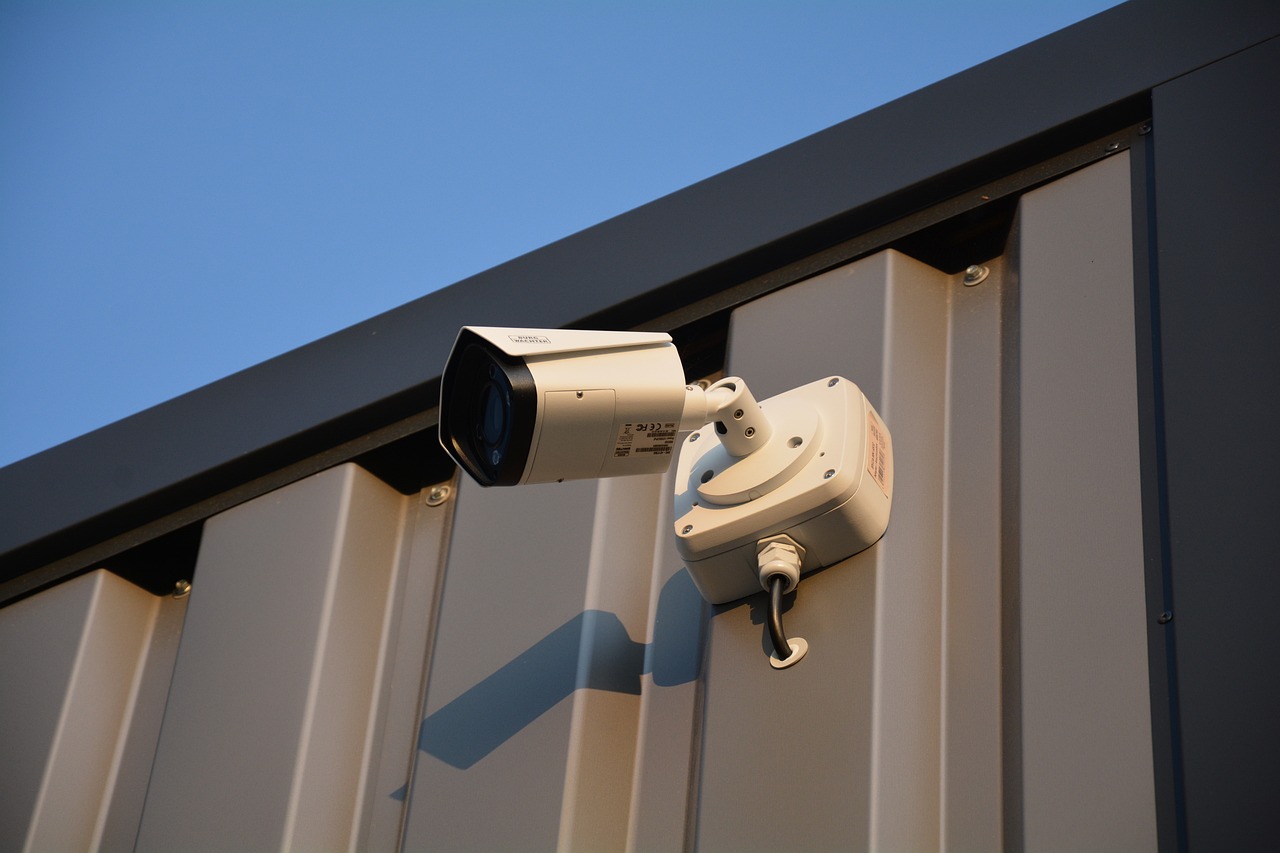
Surveillance and Self-Censorship
In our modern world, the presence of surveillance has seeped into the very fabric of our daily lives, often leading to a phenomenon known as self-censorship. This concept refers to the tendency of individuals to modify their behavior or refrain from expressing their thoughts due to the awareness that they are being watched. Imagine walking through a crowded market, knowing that hidden cameras are capturing your every move; how free would you feel to engage in spontaneous conversations or express your opinions? The chilling effect of surveillance can create an atmosphere where people feel compelled to conform to societal norms, stifling creativity and genuine self-expression.
The implications of self-censorship are profound. When individuals start to second-guess their words or actions, it can lead to a homogenization of thought, where only the most socially acceptable ideas are shared openly. This is particularly concerning in democratic societies, where the free exchange of ideas is crucial for progress and innovation. The fear of being monitored may prevent people from discussing controversial topics, thereby limiting the diversity of perspectives in public discourse.
To illustrate this point, consider the following scenarios where surveillance might lead to self-censorship:
- Social Media Usage: Users may avoid sharing their true opinions on political matters for fear of backlash or repercussions, leading to a sanitized version of public sentiment.
- Workplace Environments: Employees might hesitate to voice concerns or propose innovative ideas if they know their conversations are being recorded or monitored.
- Public Spaces: Individuals may alter their behavior in parks, streets, or cafes, avoiding discussions that could be deemed controversial or sensitive.
Moreover, the digital age has amplified the effects of surveillance through the pervasive collection of data by governments and corporations. Each click, each search, and each interaction online can be tracked, leading to a sense of being perpetually scrutinized. This constant oversight not only impacts how individuals communicate but also shapes societal norms. When people feel they are being watched, they tend to adhere more closely to accepted behaviors, which can stifle the rich tapestry of cultural and ideological diversity that is essential for a vibrant society.
In conclusion, the relationship between surveillance and self-censorship is a complex and troubling one. As we navigate this landscape, it is crucial to recognize the potential consequences of living under constant observation. The challenge lies in finding a balance between ensuring public safety and fostering an environment where individuals can express themselves freely without fear of judgment or repercussions. Only by addressing these concerns can we hope to cultivate a society that values both security and the fundamental right to free expression.
- What is self-censorship? Self-censorship is the act of withholding one's true thoughts or opinions due to fear of judgment or repercussions, often influenced by surveillance.
- How does surveillance lead to self-censorship? The awareness of being watched can cause individuals to alter their behavior or refrain from expressing themselves, leading to a homogenization of ideas.
- What are the implications of self-censorship in society? Self-censorship can limit the diversity of perspectives, stifle creativity, and hinder open discourse, which are essential for a healthy democracy.
- Can self-censorship affect innovation? Yes, when individuals feel they cannot share their ideas freely, it can hinder innovation and the development of new concepts.

Long-term Societal Effects
When we delve into the of pervasive surveillance, we uncover a complex tapestry woven from threads of trust, fear, and behavioral change. Imagine living in a world where your every move is monitored; how would that shape your interactions with others? The omnipresence of surveillance can create a chilling effect on free expression, where individuals may feel compelled to censor their thoughts and actions out of fear of judgment or repercussion.
Research has shown that societies under constant scrutiny often experience a decline in community engagement. People become wary of participating in public discussions or protests, fearing that their opinions might be misinterpreted or lead to unwanted attention. This self-censorship can stifle innovation and creativity, as individuals hesitate to share bold ideas or challenge the status quo. The result? A society that thrives on conformity rather than diversity of thought.
Moreover, the psychological toll of being watched can lead to increased anxiety and stress among citizens. When individuals perceive that they are under surveillance, it can foster a sense of paranoia, leading to a breakdown in community trust. This erosion of trust can manifest in various ways, such as:
- Reduced Social Cohesion: People may become more isolated, withdrawing from community activities and relationships.
- Increased Distrust of Institutions: If citizens feel that their privacy is constantly invaded, they may lose faith in governmental and corporate institutions, questioning their motives and transparency.
- Normalization of Surveillance: Over time, constant surveillance can lead to societal acceptance of invasive practices, making it difficult to advocate for privacy rights.
In essence, the long-term effects of surveillance extend far beyond individual discomfort; they reach into the very fabric of society, altering how we interact, engage, and trust one another. As we navigate this new landscape, it is crucial to consider not only the immediate benefits of surveillance for safety but also the potential costs to our collective psyche and social structures.
- What is the chilling effect? The chilling effect refers to the discouragement of legitimate exercise of natural and legal rights by the threat of legal sanction.
- How does surveillance impact community trust? Constant surveillance can lead to mistrust among community members, as individuals may feel their privacy is compromised, leading to social withdrawal.
- Can surveillance improve public safety without infringing on privacy? It is possible, but it requires careful implementation, transparency, and active community involvement to ensure a balance between safety and privacy.

Balancing Security and Privacy
In today's world, the debate over has become increasingly prominent. With the rise of surveillance technologies, many individuals find themselves caught in a tug-of-war between the desire for safety and the need to protect their personal freedoms. It’s like walking a tightrope; one misstep can lead to a fall into either extreme. On one side, we have the argument that surveillance is essential for public safety, helping to prevent crime and terrorism. On the other, there’s a growing concern that excessive monitoring can infringe on individual liberties and create a culture of fear.
To navigate this complex landscape, it's crucial to explore various strategies that can help achieve a balance. One effective approach is to implement stringent regulations that govern surveillance practices. These regulations should clearly outline what constitutes acceptable surveillance, ensuring that it is carried out transparently and with accountability. For example, laws could require that data collected through surveillance be stored for a limited time and only be accessible under specific circumstances. This would help mitigate the risk of misuse while allowing authorities to maintain necessary oversight.
Another important aspect is the role of technology in enhancing privacy protections. Innovations such as end-to-end encryption and anonymization techniques can provide a layer of security for individuals while still allowing for necessary surveillance. By leveraging these technologies, we can create a system where both security needs and privacy rights are respected. Imagine a scenario where law enforcement can access crucial data without compromising the identities of innocent citizens—this is not just a dream but a feasible reality with the right technological advancements.
Moreover, community engagement plays a vital role in shaping surveillance policies. Involving citizens in discussions about surveillance practices fosters trust and accountability. When people feel that they have a voice in the decision-making process, they are more likely to accept necessary security measures. Community forums, public consultations, and surveys can be instrumental in understanding public sentiment and concerns regarding surveillance, allowing policymakers to tailor their approaches accordingly.
To sum up, achieving a balance between security and privacy is not just a legal or technological issue; it's a societal challenge that requires a multifaceted approach. By implementing strict regulations, embracing technological innovations, and engaging the community in policy discussions, we can develop a surveillance framework that prioritizes both safety and individual rights. After all, in a society where people feel secure, they are more likely to thrive and participate actively in their communities.
- What are the main concerns regarding citizen surveillance? Many worry about the potential for abuse of power, loss of privacy, and the chilling effect on free expression.
- How can technology help protect individual privacy? Technologies like encryption and anonymization can safeguard personal data while allowing for necessary monitoring.
- What role does community engagement play in surveillance policies? Engaging the community fosters trust and ensures that policies reflect the concerns and needs of the public.
- Are there existing regulations governing surveillance? Yes, various laws exist, but their effectiveness and adaptability to new technologies are often questioned.
- What are some examples of successful surveillance programs? Programs that incorporate transparency, accountability, and community input tend to be more accepted by the public.

Policy Recommendations
As we navigate the complex landscape of citizen surveillance, it's essential to establish a framework that prioritizes both security and individual privacy rights. The key to achieving this balance lies in implementing robust policy recommendations that address the ethical concerns surrounding surveillance practices. To start, governments and organizations should adopt a principle of transparency in their surveillance activities. This means openly communicating the purpose, scope, and methods of surveillance to the public. When individuals are aware of how and why their data is being collected, it fosters a sense of trust and accountability.
Moreover, establishing clear guidelines for data usage and retention is crucial. Organizations must not only inform citizens about what data is collected but also how long it will be stored and under what circumstances it will be shared. This could be effectively managed through regular audits and independent oversight committees that ensure compliance with ethical standards. Such measures can help mitigate the risks of misuse and abuse of surveillance data.
Another important recommendation is to implement stronger consent protocols. Individuals should have the ability to opt-in or opt-out of surveillance programs, ensuring that their participation is truly voluntary. This could be achieved through user-friendly interfaces that clearly explain the implications of consent, making it easier for individuals to make informed decisions. Additionally, educational campaigns could be launched to raise awareness about surveillance practices and their implications, empowering citizens to take control of their privacy.
Furthermore, involving the community in the decision-making process regarding surveillance policies is vital. By holding public forums and discussions, stakeholders can gather diverse perspectives and foster a sense of ownership among citizens. This participatory approach not only enhances the legitimacy of surveillance programs but also ensures that they align with community values and expectations.
Finally, it is imperative to establish a legal framework that keeps pace with technological advancements. As surveillance technologies evolve, so too must the laws that govern them. Regular reviews and updates to surveillance legislation will help ensure that ethical standards are maintained, and individual rights are protected. By adopting these policy recommendations, we can create a surveillance environment that respects personal privacy while still addressing the legitimate needs for security and safety.
- What is citizen surveillance? Citizen surveillance refers to the monitoring of individuals by governmental or organizational entities, often using technology to collect data on personal activities and behaviors.
- How does surveillance impact privacy? Surveillance can significantly infringe on personal privacy by collecting and storing data without individuals' explicit consent, leading to potential misuse of information.
- What are the ethical concerns surrounding surveillance? Ethical concerns include the balance between security and privacy, the potential for abuse of power, and the lack of transparency in how data is collected and used.
- How can individuals protect their privacy in a surveillance society? Individuals can protect their privacy by being informed about surveillance practices, utilizing privacy settings on devices, and advocating for stronger privacy laws.

Community Engagement in Surveillance Decisions
In today's rapidly evolving landscape of surveillance, the importance of community engagement cannot be overstated. When it comes to implementing surveillance programs, the voices of the community should resonate louder than ever. After all, these initiatives directly affect the lives of ordinary citizens, and their input is crucial in shaping policies that are both effective and ethically sound. But how can we ensure that community members are not just passive recipients of surveillance measures, but active participants in the decision-making process?
First and foremost, fostering open dialogue is essential. Town hall meetings, public forums, and online platforms can serve as venues where community members can express their concerns, share their insights, and ask questions about proposed surveillance initiatives. This kind of transparency not only builds trust but also empowers citizens to take ownership of the surveillance policies that govern their lives.
Moreover, it's vital to establish advisory committees that include a diverse range of stakeholders. These committees can consist of community leaders, activists, law enforcement representatives, and even technology experts. By bringing together different perspectives, we can create a more balanced approach to surveillance that respects individual rights while addressing public safety concerns. For instance, a committee might analyze the potential risks of a new surveillance technology and suggest modifications to mitigate privacy infringements.
Another effective strategy is to conduct impact assessments before rolling out surveillance programs. These assessments should evaluate not only the intended benefits of surveillance but also the potential negative consequences on civil liberties and community trust. Engaging the public in this process can lead to more informed decisions and foster a sense of accountability among policymakers.
Additionally, educational initiatives can play a crucial role in community engagement. By providing resources and information about surveillance technologies and their implications, communities can better understand the stakes involved. Knowledge empowers citizens to advocate for their rights and participate meaningfully in discussions about surveillance policies. For example, workshops or webinars can be organized to demystify how surveillance systems work and what legal protections are in place.
Ultimately, community engagement in surveillance decisions is not just a nice-to-have; it is a necessity for creating a society that values both security and privacy. When citizens feel heard and involved, they are more likely to trust the systems in place, leading to a healthier relationship between the public and law enforcement. As we navigate the complexities of surveillance in modern society, let’s remember that the best solutions often come from collaboration and mutual respect.
- Why is community engagement important in surveillance decisions? Community engagement ensures that the voices of those affected by surveillance policies are heard, fostering trust and accountability.
- How can communities engage in surveillance policy-making? Communities can engage through town hall meetings, public forums, and by forming advisory committees that include diverse stakeholders.
- What role do impact assessments play in surveillance decisions? Impact assessments evaluate the potential risks and benefits of surveillance initiatives, helping to inform and guide policy decisions.
- How can education help in community engagement? Educational initiatives can provide citizens with the knowledge they need to understand surveillance technologies and advocate for their rights.

Conclusion: Navigating the Future of Surveillance
As we stand at the crossroads of technology and ethics, the future of surveillance presents a complex landscape that requires careful navigation. The ongoing debate surrounding citizen surveillance is not merely about the tools and techniques used; it is fundamentally about the values we uphold as a society. We must grapple with the question: how do we ensure public safety without compromising individual freedoms? This balancing act is essential as we consider the implications of surveillance on our daily lives.
In an age where data is the new currency, the stakes are higher than ever. Surveillance technologies have the potential to enhance security, but they also pose significant risks to privacy and civil liberties. The challenge lies in developing frameworks that not only protect citizens but also foster trust between the public and governing bodies. This trust is crucial; without it, the social contract that binds us can unravel, leading to a society rife with suspicion and fear.
To navigate this future effectively, we need to prioritize transparency and accountability in surveillance practices. Citizens deserve to know how their data is being used and the extent to which they are being monitored. This calls for robust privacy policies that are not just legal jargon but are clear and accessible to the average person. Furthermore, organizations must be held accountable for their surveillance activities, ensuring that they respect the rights of individuals while pursuing their objectives.
Moreover, community engagement is paramount in shaping surveillance policies. By involving citizens in the decision-making process, we can create a more inclusive approach that reflects the diverse values and concerns of the population. This not only enhances the legitimacy of surveillance initiatives but also empowers individuals to have a say in their own governance.
As we look ahead, it is essential to consider the role of education in fostering a well-informed citizenry. People must be equipped with the knowledge to understand the implications of surveillance and their rights within this framework. Educational initiatives can demystify the technology behind surveillance, enabling individuals to make informed choices about their privacy and security.
In conclusion, navigating the future of surveillance requires a delicate balance of security and privacy. It is a journey that demands ongoing dialogue, ethical considerations, and a commitment to upholding the values that define our society. As we move forward, let us strive to create a world where safety does not come at the expense of freedom, and where technology serves as a tool for empowerment rather than oppression.
- What is citizen surveillance? Citizen surveillance refers to the monitoring of individuals by governments or organizations to ensure public safety and security.
- How does surveillance impact privacy? Surveillance can infringe on personal privacy by collecting and storing data without individuals' explicit consent or knowledge.
- What are the ethical concerns surrounding surveillance? Ethical concerns include the potential for abuse of power, lack of transparency, and the erosion of trust in society.
- How can communities influence surveillance policies? Communities can influence policies by advocating for transparency, participating in public discussions, and demanding accountability from organizations and governments.
Frequently Asked Questions
- What is citizen surveillance?
Citizen surveillance refers to the monitoring of individuals by government entities, corporations, or even fellow citizens, often using technology such as cameras, drones, and data collection tools. This practice raises significant ethical questions regarding privacy, security, and the balance of power in society.
- How does surveillance impact privacy rights?
Surveillance can significantly infringe on privacy rights by collecting personal data without explicit consent, leading to a feeling of being constantly watched. This can create a chilling effect, where individuals may alter their behavior or refrain from expressing themselves freely due to the awareness of being monitored.
- Is consent necessary for data collection in surveillance?
Yes, consent is crucial for ethical data collection. However, many individuals may not fully understand what they are consenting to, raising concerns about whether their agreement is truly informed or if it stems from coercion or lack of options.
- How do privacy policies affect surveillance practices?
Privacy policies are designed to inform individuals about how their data is collected, used, and shared. However, many policies are complex and difficult to understand, which can lead to a lack of transparency and trust between organizations and the public.
- What are the legal frameworks governing surveillance?
Legal frameworks for surveillance vary widely by country and often include laws that regulate data protection, privacy rights, and governmental oversight. These laws aim to protect citizens but may require reform to keep pace with rapidly advancing technology and changing societal norms.
- Can surveillance programs enhance public safety?
Yes, when implemented ethically and transparently, surveillance programs can enhance public safety by deterring crime and aiding law enforcement. However, success depends on striking a balance that does not compromise individual rights.
- What are the psychological effects of constant surveillance?
Constant surveillance can lead to anxiety, stress, and self-censorship among individuals, as they may feel pressured to conform to societal norms or refrain from expressing dissenting opinions. This can ultimately affect the overall mental health of a community.
- How can communities engage in surveillance policy-making?
Community engagement is essential for developing surveillance policies that reflect the values and needs of the public. This can involve public forums, surveys, and collaborative discussions to ensure that citizens have a voice in how surveillance is conducted in their neighborhoods.
- What are some recommended policies for ethical surveillance?
Recommended policies include establishing clear guidelines for data collection, ensuring transparency in surveillance practices, and implementing regular audits to assess the impact on privacy rights. Additionally, fostering community dialogue can enhance trust and accountability.



















